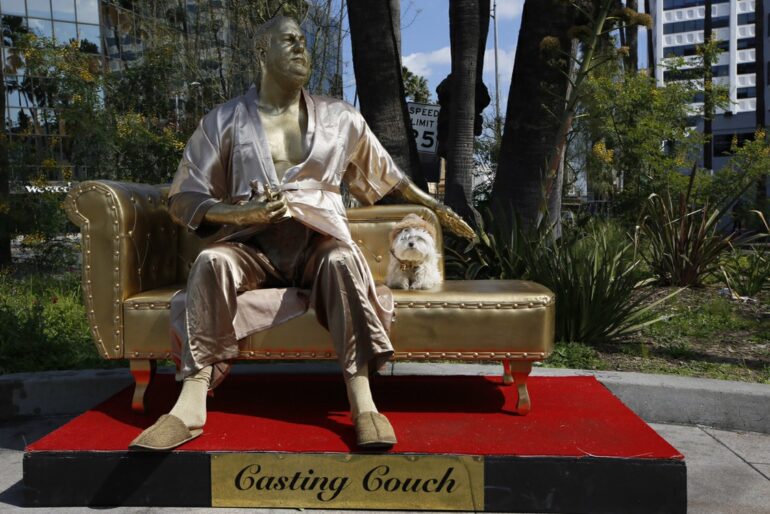October will mark the four-year anniversary of the release 2017 release of the New York Times article that exposed Harvey Weinstein, former Hollywood film producer, and Democratic contributor, as a sexual predator of actors and singers alike. With allegations of sexual abuse and misconduct whose cases number in the hundreds and Weinstein’s own prominence in the film industry via his distribution company, Miramax, stemming back to the 1970s, it is still baffling to think that his actions went unreported and unreleased for so long. This is especially true given the fact that many of the Weinstein victims were high profile Hollywood stars: Léa Seydoux, Kate Beckinsale, Eva Green, Gwyneth Paltrow, and Lupita Nyong’o, to name just a few. Weinstein even had high-profile connections with individuals such as Barack Obama and Hillary Clinton’s whose platforms could have easily brought light to his monstrous actions. However, for the majority of his career, Weinstein found Hollywood’s climate of secrecy and desperation to be entirely in his favor.
Though given the most media attention thanks to it coming on the heels of the #MeToo movement, Weinstein’s activities were not at all unique should the testimonies of other unrelated victims be trustworthy. Actors intimidated by film executives capable of seemingly ending their careers with a word should their heinous demands not be meant is a tale as old as the American movie industry itself.
The term “casting couch” that would be coined much later after this rape culture phenomenon had its grip on the industry actually stems from Broadway Theater where Foster Hirsch, writer of The Boys From Syracuse: The Shuberts’ Theatrical Empire, documents theater mogul Lee Shubert’s owning of “an elegantly furnished boudoir, reserved for leading ladies and promising ingenues, and a shabby, spartanly furnished room with a single couch where he met chorus girls and soubrettes.” An early case of rape that actually occurred in Hollywood came in 1921 when Roscoe Arbuckle was accused of assault by Virginia Rappe, who later died due to bladder complications reportedly in connection with the alleged incident.
Over the subsequent passing of the century and eerily similar cases became commonplace where the men leveraged their power over the careers of budding stars. Young adult women were not the only targets of this abuse as even grown men and children brought onto the casting couch were not immune. Modern-day He-Man Terry Crews fired back at mockers who poked fun at his alleged groping by Adam Venit, who was then a talent agent at the time.
You told the world “God Gave Me Muscles So I Could Say No…”
Are you implying I “wanted” to be sexually assaulted?
I’m listening, sir…https://t.co/v6Q4xrvfJQ
— terry crews (@terrycrews) January 27, 2019
Of the phenomenon of pedophilia, actor Corey Feldman shed light on the matter in a 2011 interview where, he claims, “I can tell you that the No. 1 problem in Hollywood was and is and always will be pedophilia. That’s the biggest problem for children in this industry,” later claiming on that he was surrounded by predators since he was 14. He later released a documentary on the topic alongside his close friend, fellow victim, and the now-deceased Corey Haim in the documentary My Truth: The Rape of 2 Coreys, where even the likes of Charlie Sheen are accused of foul play.
Though later partially redacting his statement and claiming he had no firsthand experience to speak of, childhood actor Elijah Wood told the Sunday Times in an interview that “There are a lot of vipers in this industry, people who only have their own interests in mind. There is darkness in the underbelly.” His original statement attempted to draw a comparison to what he suspected was going on behind Hollywood’s closed stores and the case of the United Kingdom’s Jimmy Saville, a BBC star and children’s program host connected with numerous instances of sexual misconduct with minors.
The possibly most disturbing and heartbreaking scenario that truly pegs how far back casting couch culture reaches is that of Shirley Temple, child star of the 1930s and 1940s, as well as a United States Diplomat. In her autobiography, Child Star, Temple claimed that a Metro-Goldwyn-Mayer, executive exposed himself to her at 12 years old.



